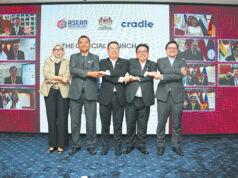
The Department of Science and Technology-Technology Application and Promotion Institute (DoST-TAPI) has upgraded its premier mentoring and capacity-building program called Honing Innovations, Research, Agreements, and Negotiations of the Government-funded Technologies 2.0, or HIRANG 2.0.
The program intends to help startups and DoST-Research and Development Institute (DoST-RDI) spin-offs build their capability in running their business, building their portfolio, and eventually closing investment deals and business partnerships.
HIRANG 2.0 is open particularly to Filipino-owned startup companies where the technology generator or researcher is involved in the business operations or acts as a consultant.
Also eligible to join the program are spin-off companies of DoST-RDIs. These RDIs include the Advanced Science and Technology Institute, Food and Nutrition Research Institute, Forest Products Research and Development Institute, Industrial Technology Development Institute, Metals Industry Research and Development Center, Philippine Nuclear Research Institute, and Philippine Textile Research Institute.
With HIRANG 2.0, the enrolled startups and DoST-RDI spin-offs will undergo three to four months of training, depending on their needs.
Some of the areas covered by the training include investment and business development, and intellectual property business portfolio creation.
The program will shoulder the costs of contracting mentors, experts, and consultants to guide the startups and spin-offs throughout the program. In addition, DoST-RDI spin-offs can also access up to P250,000 to produce product samples.
The program was first launched in 2020 to capacitate technology transfer officers from the DoST-RDIs in securing technology licensing agreements with private sector technology adopters.
With the program’s relaunch into HIRANG 2.0 in 2023, it now focuses on supporting startups and DoST-RDI spin-offs, and helping them thrive in the local innovation ecosystem.
Romeo M. Javate, chief of TAPI’s Investment & Business Operations Division (IBOD), where HIRANG 2.0 is implemented, said that startups and spin-offs miss out on optimum growth opportunities if they are not investment-ready.
“Our main observation when we have launched [the program a year ago] is that most of our MSMEs are not ready to upscale for investment. Reading their investment proposals, we identified this lack of investment readiness, [which] hampers their potential for optimum growth,” Mr. Javate said in a promotional video for HIRANG 2.0 published last year.
Mr. Javate hopes that budding “technopreneurs” will be better equipped to secure funding from investors with the program.
HIRANG 2.0 is open year-round, subject to the availability of program funds.
Interested startups and DoST-RDI spin-offs may review the details of the program, including how to apply, by visiting http://www.tapi.dost.gov.ph/call-for-proposals/hirang.



